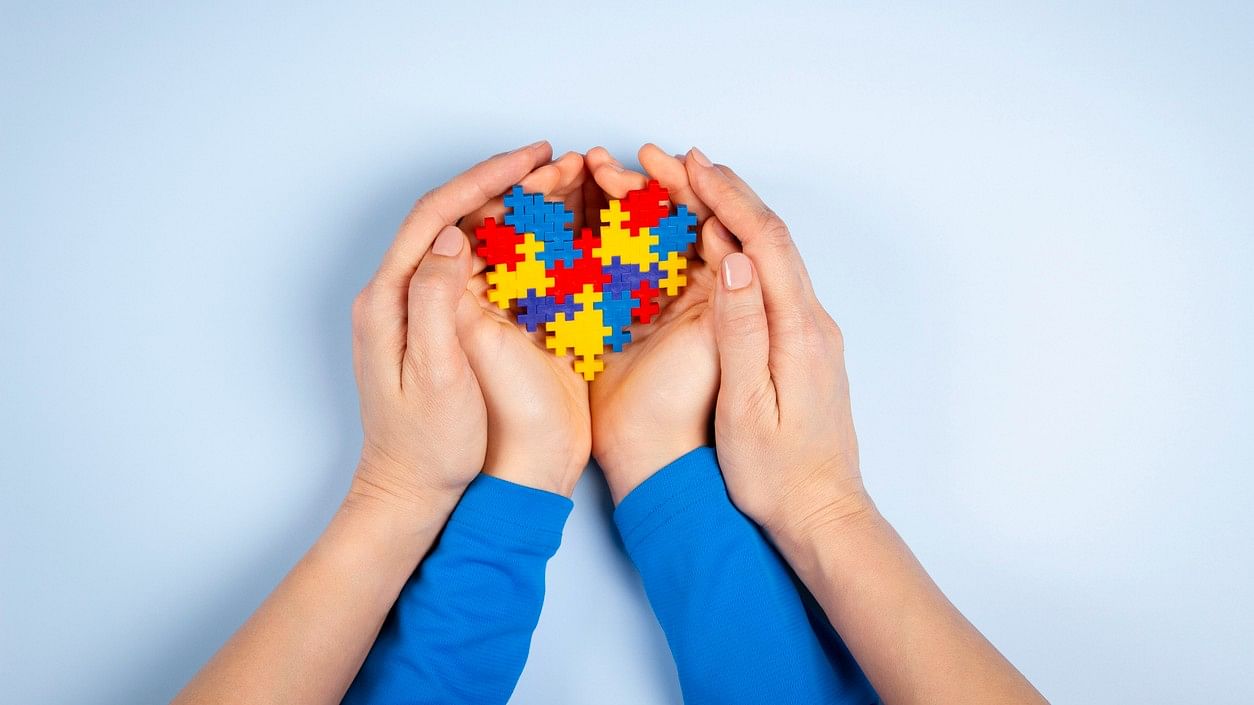
Rachana Prasad, founder-managing trustee at Chiranthana, advocated for a societal shift.
Credit: iStock Photo
Bengaluru: With World Autism Awareness Day being marked on April 2, experts and educators call for greater awareness and action for people with the Autism Spectrum Disorder (ASD).
ASD, a neurodevelopmental disorder, manifests as challenges in social interaction, learning, communication, and behaviour. The onset results from a combination of genetic and environmental factors, impacting brain development, and lacks a cure.
While the estimated prevalence of ASD in India stands at approximately 1 in 80 to 90 children, the absence of a centralised database impedes accurate tracking of these numbers.
Prof John Vijay Sagar, Head of the Department of Child, and Adolescent Psychiatry at Nimhans, revealed that their department has diagnosed and treated around 500 children annually over the past decade. He urged parents to recognise ASD signs in their children before the age of 2 to 2.5 years and seek evaluation and care.
"Parents should not assume that things will get better by themselves, and must seek a formal evaluation at the earliest. Since most cases of ASD are often mild to moderate, with severe cases being quite rare, early multi-disciplinary care will help improve overall outcomes,” he said.
He further noted that hesitation in seeking assistance may stem from the stigma surrounding ASD and misunderstandings about the condition. Moreover, while heightened parental awareness in urban areas may have led to increased diagnosis rates in the past two decades, it would be inaccurate to infer a rise in prevalence, he added.
Rachana Prasad, founder-managing trustee at Chiranthana, advocated for a societal shift.
"People need to be more accepting and kinder towards children when they are having a meltdown or reacting in a certain way. We need more advocacy and greater sensitisation of the community, besides making public transport systems more accessible and safer for children with ASD,” she said.
She noted persistent education and awareness gaps in rural areas, while fear and stigma exist even in urban settings despite enhanced support and resources.
Mass education initiative
Major General (Retd) Suresh Krishnan, joint secretary, The Autism Society of India, a group of parents of children with ASD and professionals handling them, called for a government-sponsored mass education initiative.
"The government must carry out a proper census of children with ASD using trained professionals because we don't have even a rough idea about countrywide numbers. They can use this information to devise better campaigns such as mass awareness advertisement drives on television,” he said.
Early signs to watch out for
Non-responsive while being addressed.
Little to no eye contact.
Non-verbal communication.
Difficulty understanding non-verbal cues.
Difficulty engaging in interactive play.
Engaging in repetitive movements.
Hypersensitive or less sensitive to sensory inputs such as light and sound.
Difficulty adjusting to changes in their surroundings.